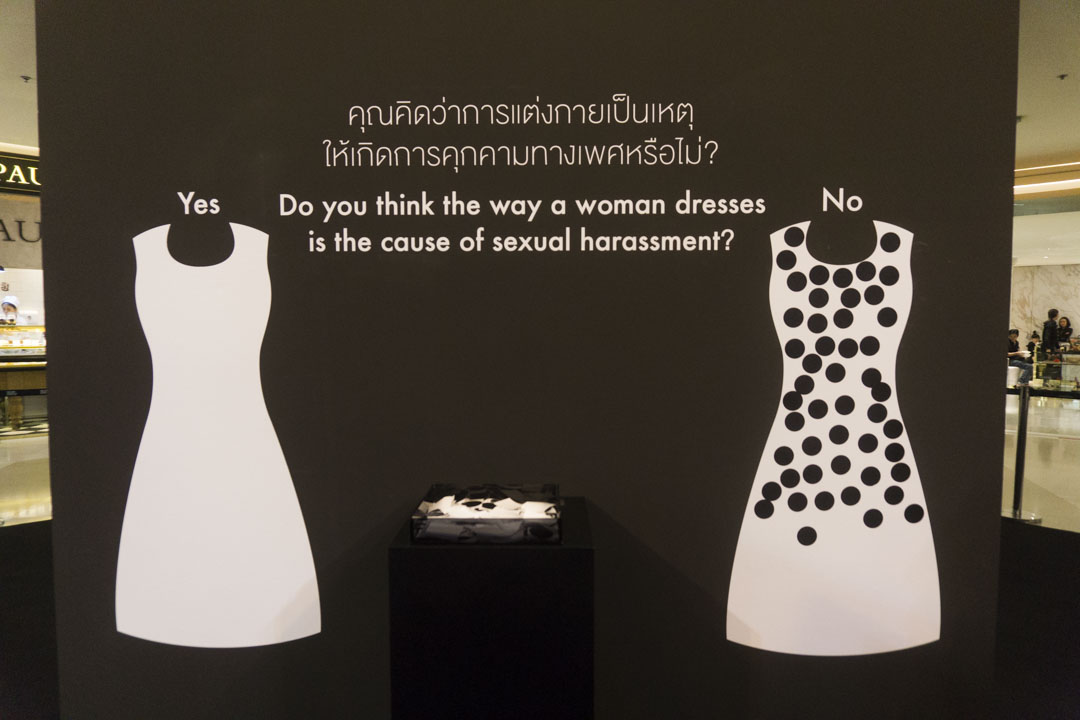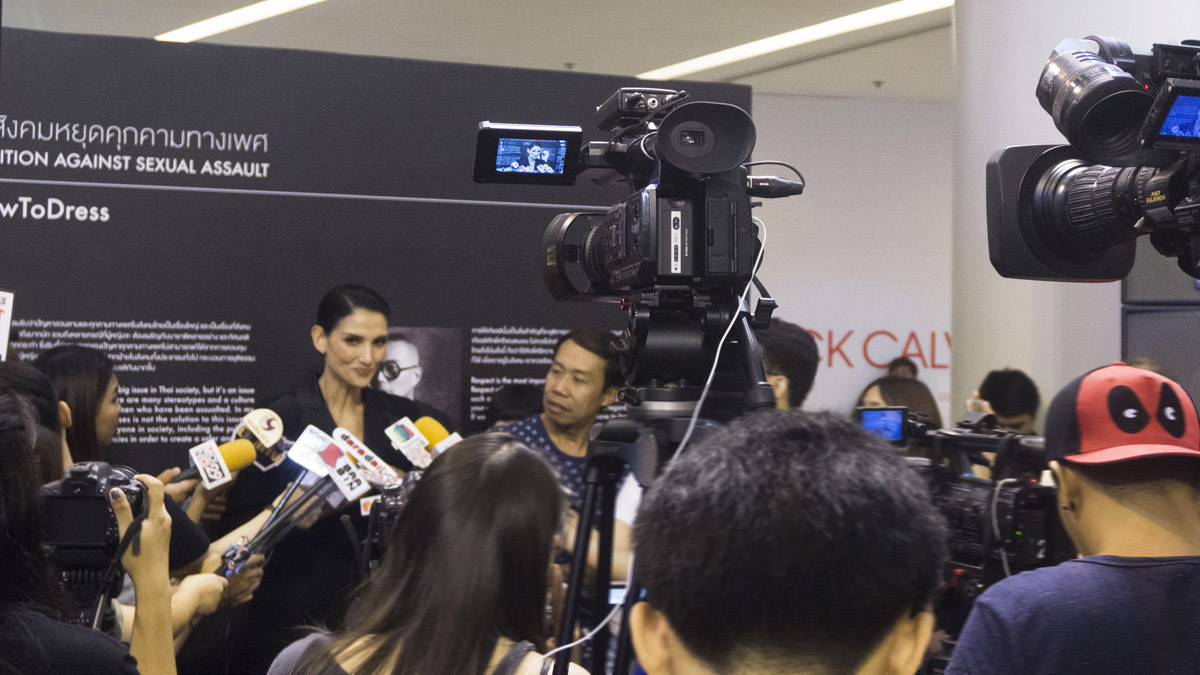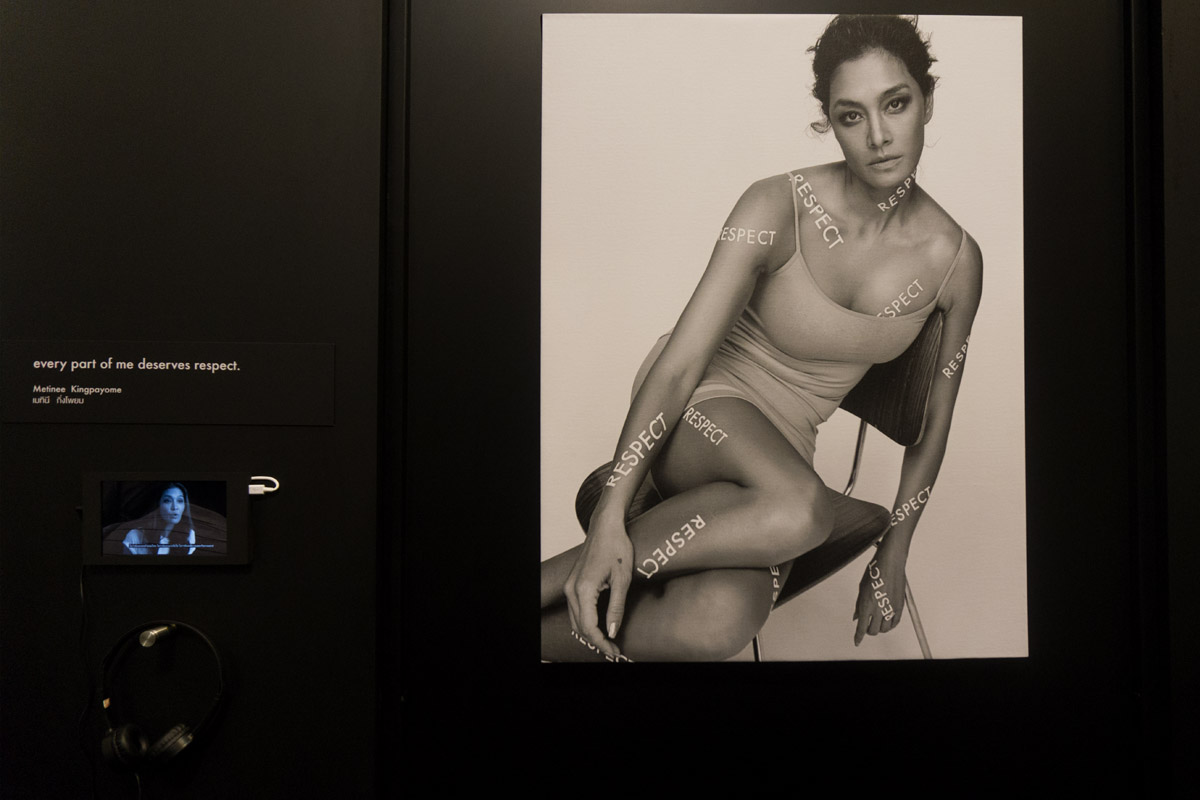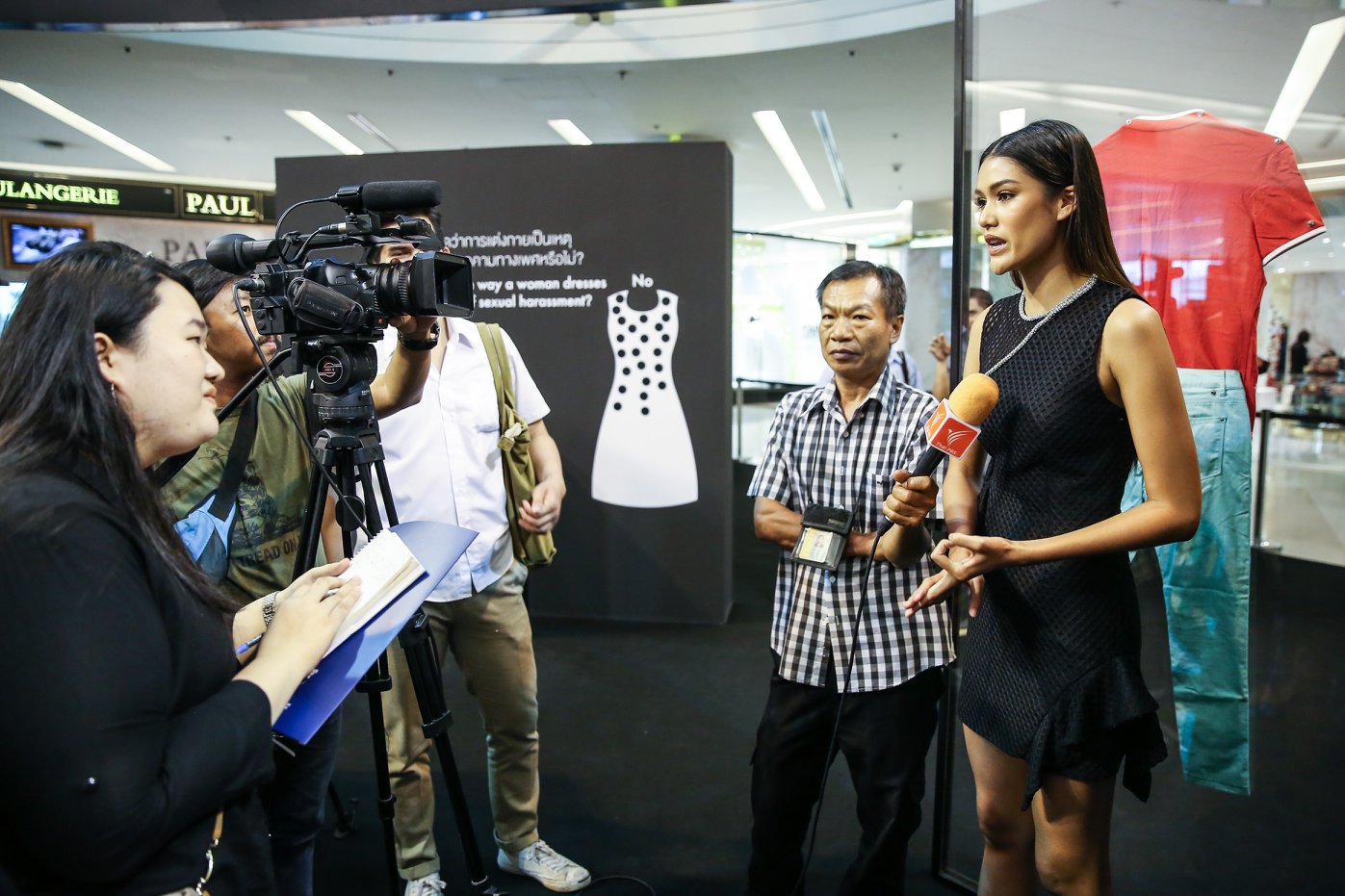OPINION — Her T-shirt read #DontTellMeHowToDress, so did the billboard at the event to advocate against victim blaming. So naturally, the Thai television crew in attendance asked actress Taya Rogers the crucial question on everyone’s mind: Did she or did she not plan to do a bikini shoot for her Instagram fans this summer?
Questions about her boyfriend followed. Lots of questions about her boyfriend.
It was an all-too-perfect example of just why we need more events like these. A lot of them.
In a society where authorities frequently shame sexual assault victims for wearing too little, the exhibit at Bangkok’s Siam Paragon mall (which wrapped last Sunday) set out to give lie to that twisted logic with a harrowing and powerful exhibition of the clothing of Thai rape victims — one just 2 years old.
Part of an ongoing effort by Thai supermodel Cindy Sirinya Bishop — who sparked the first social media movement in Thailand that empowers women — the exhibit also featured photographs of local acting and modeling stars, posing in themes meant to signify empowerment.
In April, Cindy launched the hashtags #DontTellMeHowToDress and #TellMenToRespect in response to a police comment that suggested women should cover up if they hoped to avoid sexual harassment during the annual Songkran Festival.

It’s impossible to avoid comparisons to the US-spawned #MeToo movement, which saw women — and men — in the entertainment industry step forward one by one in what soon became a flood of painful stories of abuse, including rape.
Months later, people all over the world have shared their personal experiences of harassment, and numerous celebrities and executives have been publicly held to account. At least one, former Miramax Films chief Harvey Weinstein, is looking at a potential prison stay.
#DontTellMeHowToDress hasn’t had that same sort of impact — yet — but it’s the start of an important conversation in Thailand, even if none of the local celebrities advocating for change were speaking about their own personal experience. That decision is perhaps understandable, given the slow pace at which Thai cultural norms change.
But if the nuance and sensitivity on display from the Thai press corp at the exhibit’s opening event was any indicator, that sort of shift may take even longer than any of us imagined.

As Cindy again recounted her own painful experience with sexual harassment, one journalist blurted out: “It even happened to famous people like you?!”
“Well, I wasn’t famous at the time,” she responded before attempting to address broader issues of misogyny.
Other similarly mind-numbing questions quickly drowned her out.
“Is this issue bigger now?”
“How is this event useful to people?”
“Did it work?”
Cindy has shown undoubted bravery in sharing her personal story with the public, but her core message — that men need to show basic respect for women — is routinely overshadowed by sensationalized headlines that simply miss the point.
Khaosod headlined its article about Cindy “She has been harrassed!” while MThai said Cindy “had a scar in her heart” from that Songkran. Meanwhile, talk show WoodyWorld said it had discovered “The truth about Cindy: She has been harrassed by 5 guys.”
To her credit, I doubt Cindy cares — bad press is better than no press. What’s important is that she’s leading a movement that Thailand desperately needs. She said as much at the event.
“People who come to this event will see what we try to communicate,” she told reporters in quotes picked up by Manager. “They will no longer use the victim’s attire as an excuse for harassment. At least, it encourages the society to talk more about this issue. It’s a start of a change.”
In another corner of the room at the launch event, Thai-American actress Taya Rogers confided in me about the raft of unrelated questions she’d faced about her Instagram bikini pics and football star boyfriend.
“Just like you, I don’t understand why. I’m disappointed,” she said. “The first few reporters asked me about the event, but then the others asked me — it’s summer, am I going to have a swimsuit shoot? How is my boyfriend doing? And are we having a big announcement coming?”
“I understand that it’s Thai culture and I need to be nice to the press, but a part of me wants to talk about a more important issue. It’s not only the media’s fault. It’s our fault too that we give answers to these questions.”
Despite the encounter, the actress said she remained happy for the chance to use her platform in a positive way.
“Our country doesn’t talk about the issue [of victim blaming] enough. But it’s time for people to address this, not about who wears what,”
While Taya was fielding questions about her Instagram account, Miss Universe 2015 Aniporn Chalermburanawong was being asked not about her take on the #DontTellMeHowToDress movement, but about her latest acting role, something she tried to take in stride.
“I think it’s normal for the Thai entertainment industry. It’s just a way for them get into the important issue,” she said.
It’s not an uncommon point of view, but if celebrities who have the platform to speak about gender equality aren’t being taken seriously, it’s not hard to understand why the rest of us feel like we’re not being listened to.
If the Thai media’s strategy is to distract readers with swimsuit pictures and celebrity love life when ostensibly covering an event about victim blaming, it just proves how little as a society we are willing to address the issue head on.
These famous women may swear by the message “Don’t tell me how to dress,” but the truth is, that’s still the only thing people care about — the way they dress.

The #DontTellMeHowToDress exhibition runs on July 4-15 at Bangkok Art and Culture Center. For more information, check their Facebook Page.


